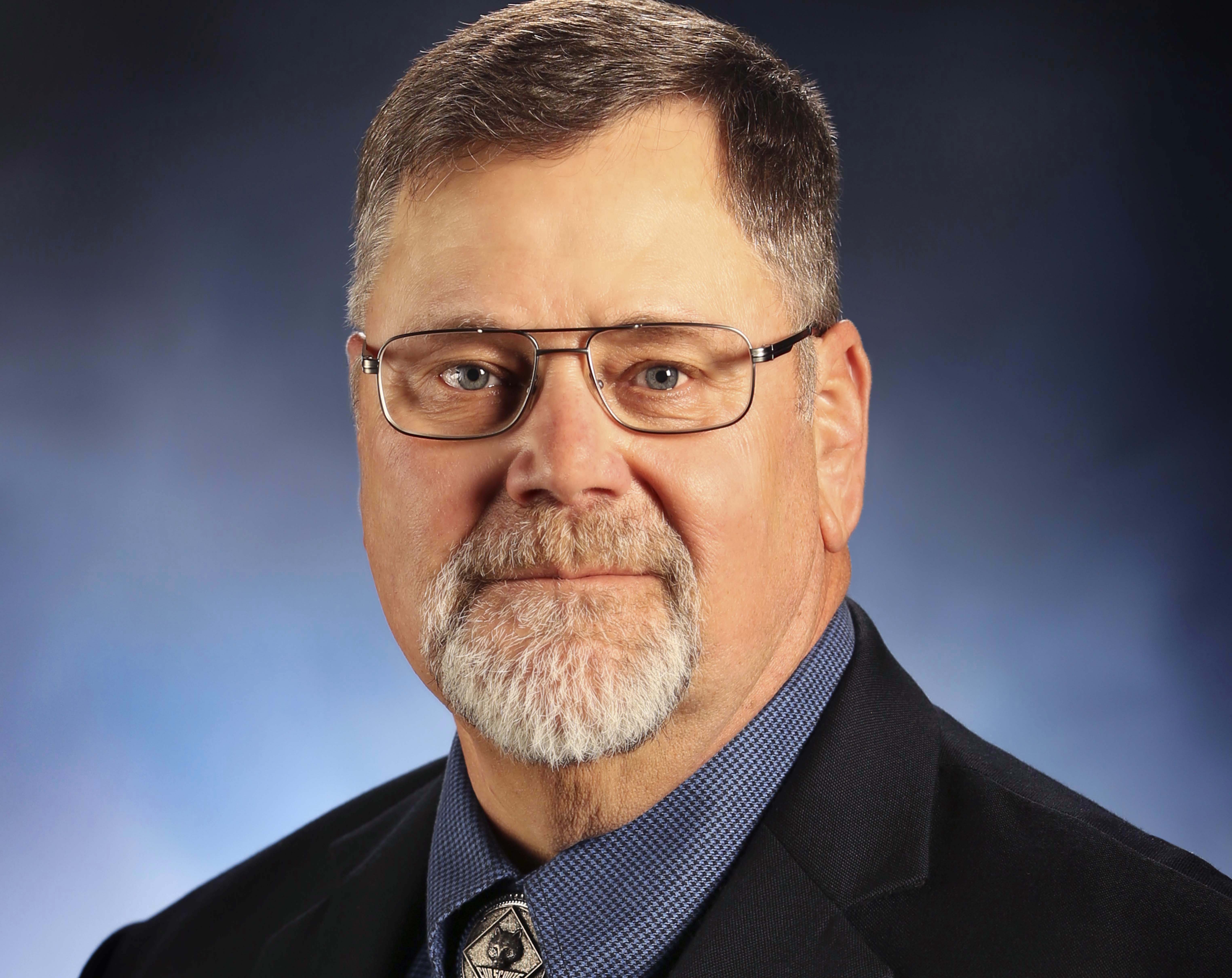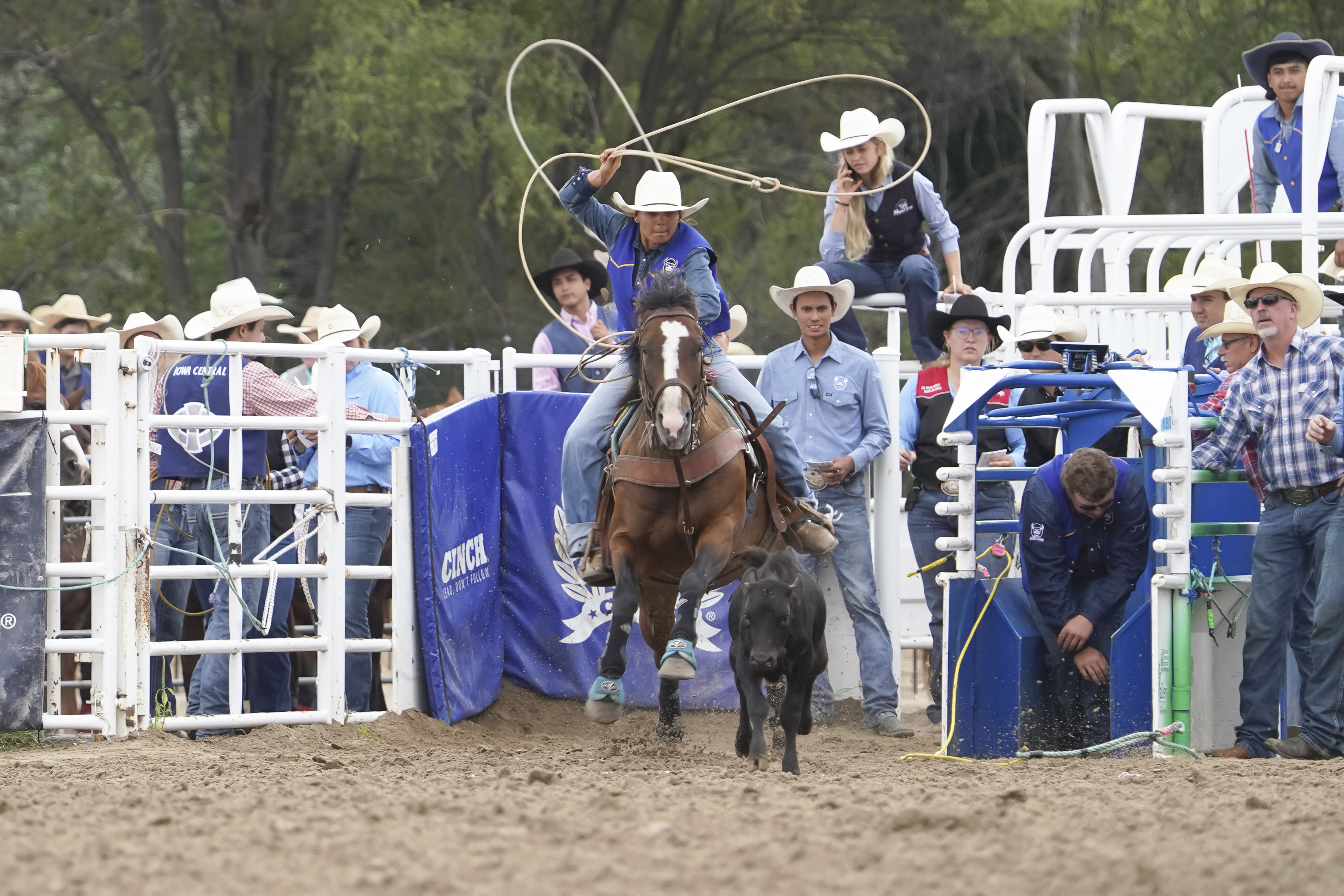MCC alum dedicates lifetime to protecting others

Bill Hoyt has spent a lifetime looking out for those around him.
He wouldn’t have it any other way.
“I’m a guard dog by nature,” Hoyt said. “I have no problem focusing my time and energy taking care of those in need.”
It’s a philosophy he developed at an early age thanks to his background in agriculture. Hoyt was raised on a farm south of McCook where he had many day-to-day responsibilities, including caring for his family’s animals.
Hoyt went to the District 8 country school until ninth grade, at which time he attended McCook High School. Upon graduating MHS in 1974, he enrolled at Fort Hays State University.
“I had the idea that I would get a teaching degree in ag, but after a semester, I realized that wasn’t going to work out,” Hoyt said. “Truth be told, I was more interested in the rodeo team than academics. So, in the fall of ’75, I came back to McCook Community College, which gave me an opportunity to get my basics done while I tried to find some direction. I got more out of my time there than I ever did at Fort Hays.”
Hoyt was already familiar with MCC’s programs. He had taken aviation classes there and subsequently earned a pilot’s license right after high school.
“By the time I got done with my second semester at MCC, I realized I didn’t want to be a teacher because I didn’t want to be stuck in a building,” Hoyt said. “That being said, I still didn’t really know what I wanted to do, so I took some time off to figure it out.”
That meant returning to the lifestyle he was familiar with.
“I always loved being in the middle of nowhere,” Hoyt said. “I went back to farming and ranching, day working for people, building fence, driving trucks and running trap lines. By 1979, I had made enough to buy into a farming partnership. That was also the year I got married.”
Unfortunately, his success in the agriculture realm was short-lived.
“By the mid ’80s, high interest rates were taking a lot of farmers down. They didn’t help me a lot either,” said Hoyt. “Things weren’t going well at all. I had one little boy and another on the way, so I decided it was time to look a different direction.”
That’s when he saw an ad in the McCook Gazette advertising for city firemen and policemen.
“Emergency services had always been of interest to me, and it had prompted me to go through MCC’s EMT program in the early ’80s,” Hoyt said. “I already volunteered with the ambulance and with both the rural and city fire departments. I applied for both jobs that the city was offering and didn’t get the fireman position. I did start as a cop Feb. 2, 1985.”
He began as uniform patrol, but soon found his calling lay somewhere else.
“I didn’t really like uniform patrol,” Hoyt said. “Giving someone a traffic ticket was not my thing. I felt like I was hassling people. I understand the need for traffic laws, but that just wasn’t me.”
By 1991, he had been promoted to detective, and he stayed in criminal investigation for the remainder of his law enforcement career.
“I felt like I was home there,” Hoyt said. “When I started in law enforcement, I went through an eight-week course at the Nebraska Law Enforcement Training Center in Grand Island and then accessed continuing education whenever opportunity presented. I got into criminal investigation through a testing process. I had the highest pass rate of the entire group and just seemed to have an aptitude for it. I soon became dedicated to stopping crimes against children.”
It wasn’t much of a stretch for him. The work was based on the same basic principles he had been adhering to his whole life.
“When I moved from the ranch to town, it turned out to be essentially the same job,” Hoyt said. “I had to look after the herd, paying particular attention to the young and most vulnerable then discourage or eliminate predators.”
As it turned out, MCC played an even bigger part in his life during his career than when he was a traditional student.
“I was able to keep up my EMT certification over the years because I had easy access to McCook Community College’s continuing education classes,” Hoyt said. “I found a lot of value in going back and picking up odd and end classes when I did because, at that point in my life, I was finally prepared to learn.”
Hoyt took Spanish classes at MCC to help him with his communication skills on the job, and thanks to MCC, found fulfillment in the role he didn’t originally want to do – teaching.
“I taught an investigating child abuse class at MCC and was surprised how much I liked being an instructor,” Hoyt said. “I guess everything comes full circle. Who would have thought?”
Because of Hoyt’s experience, his youngest son went on to attend MCC as well, providing a significant cost-savings to the family.
“I’m a huge fan of the community college system, and I think it’s a better move for the vast majority of us,” Hoyt said. “I’ve seen a lot of people in the same role their entire career. Their horizons are just so limited. Community colleges draw people from a lot of walks of life, giving students have a chance to meet and rub elbows with those they wouldn’t normally run across. I’ve rather enjoyed my extremely eclectic lifestyle, and I owe a lot of that to MCC.”
Hoyt was involuntarily medically retired from law enforcement in 2010, at which point he moved back to the family farm to take care of his father who was in his 90s and living alone.
“There’s a reason why they call them violent criminals,” Hoyt said. “When you spend 25 years tracking them down – you accumulate some damage. There came a time when my surgeon said he couldn’t sign off on me doing that type of physical emergency response work anymore. It was time to let it go.”
What Hoyt couldn’t let go of, however, was the desire to help others. He continues to serve as a firearms trainer for law enforcement, a role he’s had for 20 years. He is a certified firearms instructor through the National Rifle Association and through the Nebraska Extension department. He currently enjoys working with kids in 4H, Scouts and Pheasants/Quail Forever youth mentor programs.
Hoyt also spent four years on the Middle Republican Natural Resources District and is currently the District 4 director for the Nebraska Public Power District Board of Directors, which he has been part of for the past four years.
Hoyt’s father, Cloyd, also a MCC alum, was active in helping to develop irrigation, work that started with the Republican Basin Conservation Association. Cloyd also served on the Rural Electrification Administration board and on the Irrigation District, so water conservation and public power were concepts Bill was familiar with. Bill decided to run for the NPPD board because of a belief in public power and conservation.
“NPPD has given me an opportunity to still ‘protect the herd,’ and do it from a chair,” Bill said. “I’ll keep doing that for as long as I’m able.”

